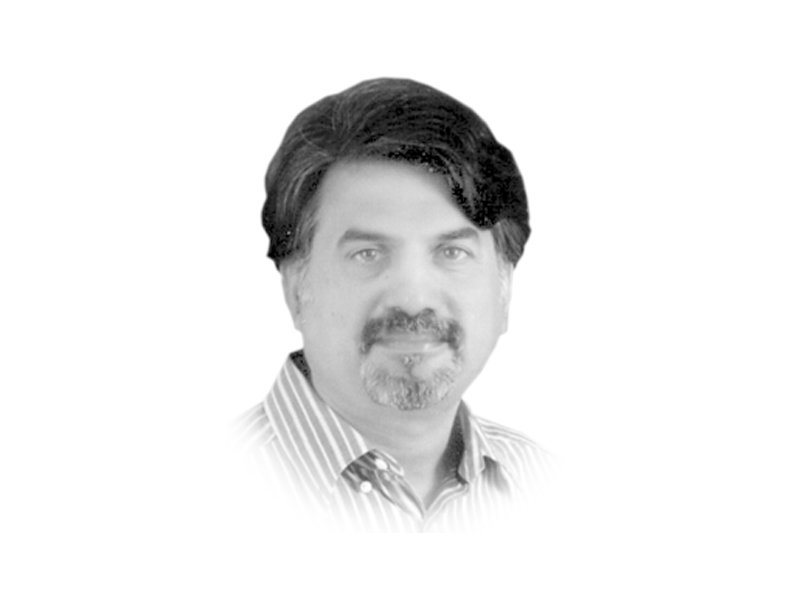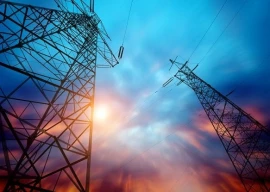
The brutal killing of the famous qawwal Amjad Sabri has left many people mourning in a country that just does not stop making international headlines for all the wrong reasons. As of now, the Hakimullah faction of the Taliban has claimed responsibility for the murder. This brutal murder of an innocent man who was the heartthrob of many in this deeply polarised society is another reminder to the failed leadership of this country that over the years, all its investments in state-building projects have gone horribly wrong. Whether it was the military leaders, Ayub Khan, Yahya Khan, Ziaul Haq or Pervez Musharaf, or the civilian leadership showcasing the Bhuttos, the Sharifs or the likes of imported prime ministers such as Moeen Qureshi and Shaukat Aziz, all failed to stop Pakistan from becoming a breeding ground of radicalism.
Why did none of these leaders visualise that their role in building a national identity based on a regressive interpretation of religion and ‘religious nationalism’ that was being thrust down the throat of the public to dilute the challenge of ethnic nationalism, in the long run, will only empower radical forces, which will one day challenge that very identity as well as the integrity of the country? The heavy doses of ‘religious medicines’ that they injected in the body of the state resulted in adverse reactions and while the body at the initial stage was only coughing and sneezing, it is now critically sick and spitting out blood. Who is to be blamed for this sickness if not successive civilian and military leaderships?
The innocent blood being spilt of people like Amjad Sabri is a consequence of years of drought of able leadership. So should we shed tears on the loss of an innocent life or should we lament our fate to have been ‘blessed’ with a leadership that benchmarks mediocrity?
Such is the extent of religious polarisation in this country now that any idea considered to be diluting ‘religious nationalism’ or ‘state-projected and sponsored religious identity’ is not only rebuffed in the strongest possible terms by the state itself, it is also defended rigorously by hooligans that the state has nurtured over the years and let loose on the people of this country. Why else would a qawwal, who believed in Sufism, find himself in the cross hairs of the guns of religious vigilantes? It is not Sindh, where Amjad Sabari died, that is to be blamed. Amjad Sabri died because Pakistan failed. It failed because its civilian and military rulers exploited religion not as a medium to build and develop interfaith harmony, but used it as a tool in building and sustaining a state that has now become extremely polarised, offering little or no room to minorities and others who may want to dissent. Sabri’s death is a consequence of such state-building projects and unfortunately any attempts to dismantle the current ideological paradigm will demand many more sacrifices. The big question is whether we are willing to continue living like this or are we prepared to challenge the deep state?
The state does nothing against so-called religious scholars and clerics who are demonstrating intolerance and spitting venom that pollutes young minds. These Zia-empowered clerics have not only infected our society with cultural and religious intolerance but have over the years grown so strong that no government dares to take action against them. Had Zia not usurped power by climbing on their shoulders he may have spared this country the radicalisation project that he subjected it to. One can quote a number of Zia-injected actions in the body of this country, from amending laws of evidence to declaring the certificates from madrassas equivalent to university degrees. But it is not what Zia did that has subjected this country to the pain that it experiences now. It is actually what the civilian leadership was unable to do in the ‘decade of democracy’ that followed Zia’s death, which damaged the country even more.
Was the Islami Jamhoori Ittehad (IJI), a group of religious parties, not brought together under one flag to challenge Benazir Bhutto and the PPP? Even more sadly, instead of challenging the parties that were offered patronage by the establishment, and fighting for democratic liberty and freedom, the young BB chose to form a government under dictates that made her a powerless prime minister whose government was dismissed in 1990. The religious and other allied parties under the banner of the IJI continued getting benefits of patronage from the establishment, the evidence of which lies in the form of affidavits submitted to the Supreme Court. Was it not the responsibility of any civilian government or the judiciary to investigate and punish the perpetrators of this crime? When nothing was done, it only empowered religious parties. Our current prime minister also led a government that saw radicalism not only proliferate in Pakistan but also in Afghanistan, which is now facing a civil war-like situation after the withdrawal of Soviet forces from there. While over the years military rulers imposed a religious identity on the state, civilian leaders also did little or nothing to challenge such designs — in fact they became part of such strategic thinking.
Those who killed Amjad Sabri possess the same misguided mentality that destroyed the 4th and 5th century statues of Buddha of Bamiyan in Afghanistan. People of similar mindset have been attacking Sufi shrines in Pakistan and since they consider their actions to be sanctioned by religion, they are hardly expected to stop targeting those associated with Sufi practices, not because they cannot be prevented from doing so but only because the state of Pakistan and the Pakistani public are still not sure about the type of country they want to live in and fight for.
Published in The Express Tribune, July 1st, 2016.
Like Opinion & Editorial on Facebook, follow @ETOpEd on Twitter to receive all updates on all our daily pieces.















1701091268-0/Elon-Musk-(3)1701091268-0-270x192.webp)

























COMMENTS (10)
Comments are moderated and generally will be posted if they are on-topic and not abusive.
For more information, please see our Comments FAQ